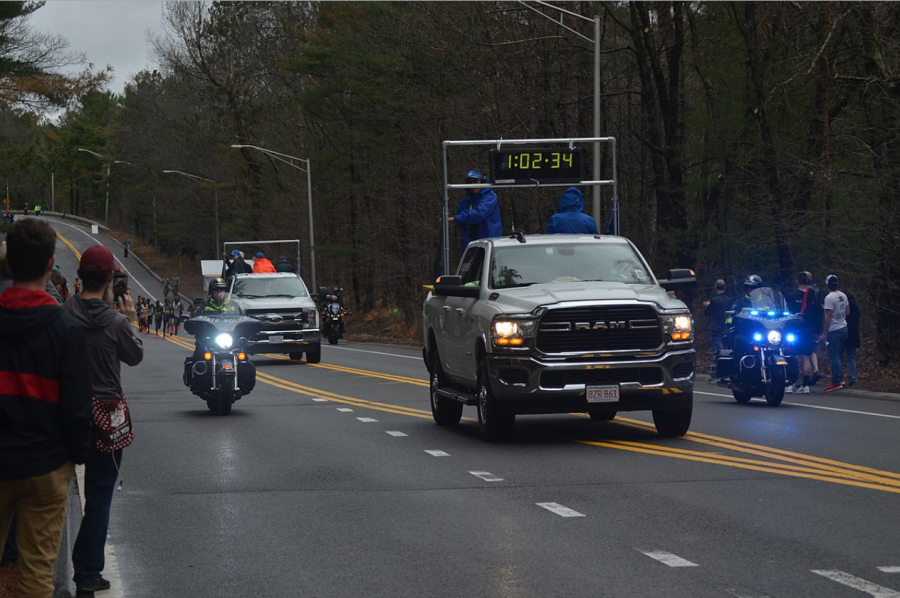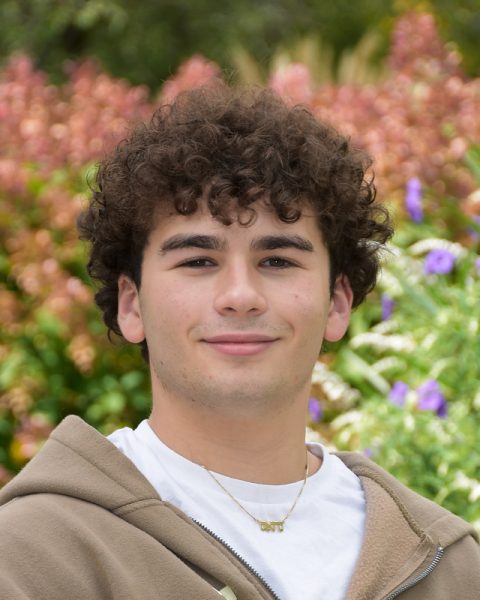Op-Ed: Remembering the Boston Marathon Bombing
Photo courtesy of Wikicommons
October 19, 2021
When most people think about the Boston Marathon bombing in 2013, they think of the past. After all, eight years can seem like a blink of an eye for some. But for me and many other people, it isn’t just the past— it is part of their daily life.
Every loud noise brings them back, whether it is someone dropping something on the floor or a thunderstorm or even a shot clock or alarm. Even if it doesn’t sound exactly like a bomb, for me, most loud things remind me of what happened, something I wish I could forget.
April 15 at 2:49 p.m. is a moment I will never forget. I was seven years old at the time. I went to the marathon’s finish line that afternoon, just like I had done in previous years with my mom, sister, and babysitter.
I remember sitting on a railing of a restaurant next to a trash can, looking out and admiring all the people who I thought had accomplished the impossible: they ran 26.2 miles. To this day, I find the feat impressive.
After watching the runners for a while, my mom said she had to go back to work and that my sister and I were to stay with our babysitter. It was a normal arrangement, but a few minutes after she left, something in my stomach made the excitement of the marathon twist into a sense of dread. I begged my babysitter to take me and my sister home.
.
With a bit of convincing, she listened to me. The walk home was about 20 minutes from the finish line. But before I even got to my front door, I heard the two loud bangs that would change my life. They echoed through the streets and hung in the air for several moments as if they refused to die out.
When I got home, the whole world felt weird, like something big had changed, but I didn’t yet know what. That blissful innocence would be short-lived.
Both my parents were at work in the financial district. My bedroom window looked over the Boston Common, so when I looked outside expecting to see the calm it usually is, all I could see was an ocean of police cars and ambulances, people running in what looked like a stampede. But in the eyes of a seven-year-old, there is nothing wrong with that.
For a few more minutes, I held onto that sense of blissful confusion until my whole family started calling to make sure I was alive.
The next day I went to school and was silent all day. Nobody could get me to talk, which was strange because I was a very loud second grader. To be fully honest, I don’t think it really set in fully what had happened until months or years later.
My idea of this peaceful, beautiful world I thought I lived in was ruined that day. The innocence was pulled out of my body with what felt like a big tornado. I was expected to carry on as if nothing had happened, and as if my perception of the world before didn’t feel like a lie.
I now sit here as a sixteen-year-old the day after the Boston Marathon, thinking about how to write this article. People keep asking me how I remember the details almost nine years later.
But the truth is that I would do anything to forget, but those memories are forever ingrained in who I am.
Over 260 people are reported to have been injured by the explosions, but that number doesn’t come close to the people whose lives were changed forever, perhaps not physically, but mentally and emotionally.
I hope to bring awareness to those people who still struggle around the time of that marathon and to show them that they are not alone. Just because someone wasn’t physically affected by it doesn’t mean it didn’t change their lives. Sometimes the effects are more than skin-deep.























































